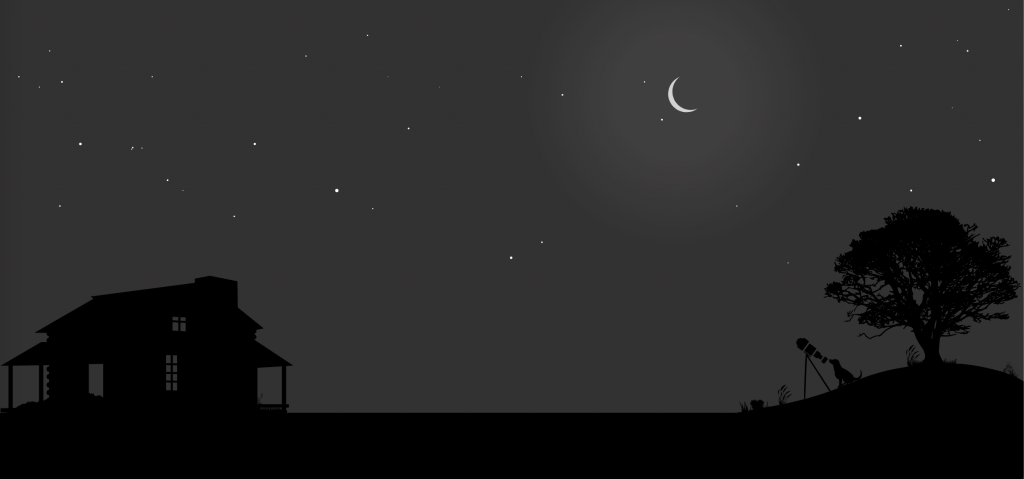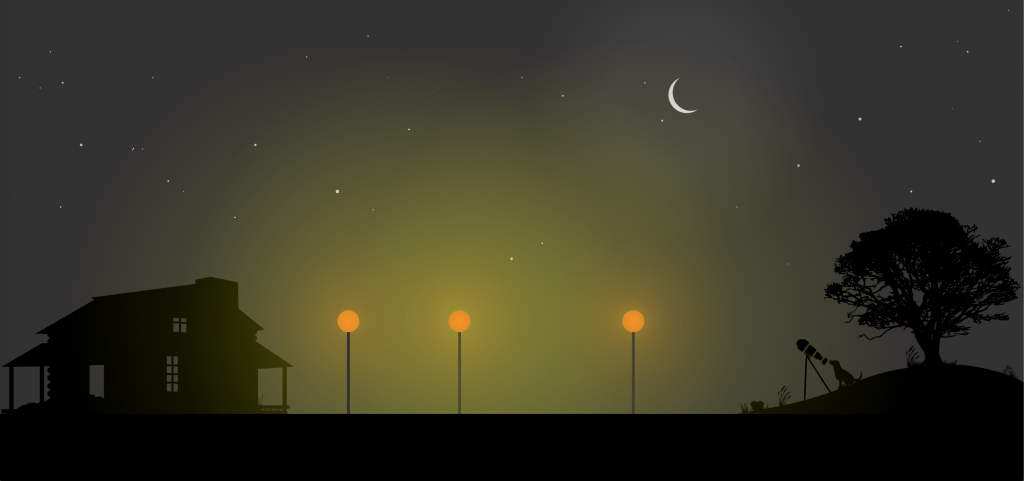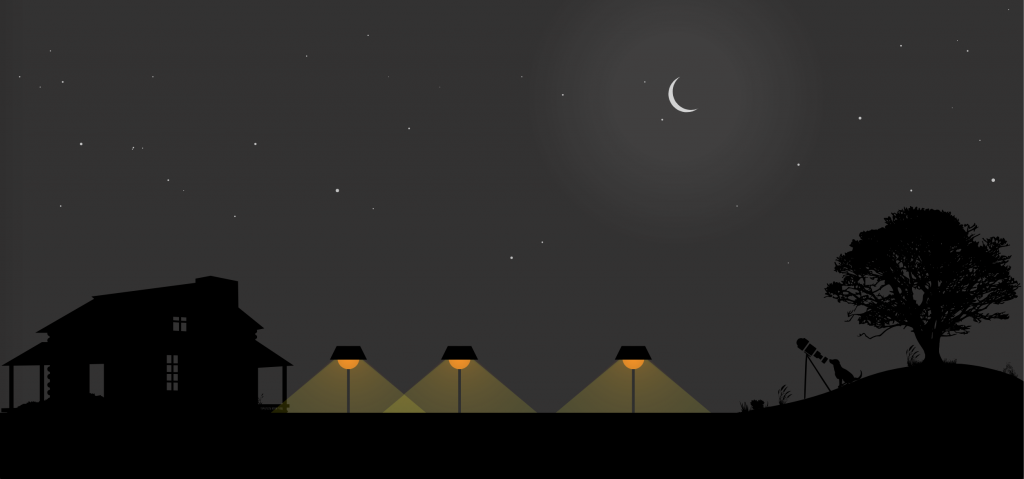Raising awareness of the effects of light pollution
Among the various forms of pollution, light pollution is one of the least known but still has a major impact on our environment. The excessive presence of artificial light in the night environment affects animals and plants, influencing their growth, interactions and threating the balance of the entire ecosystem. It also prevents astronomers from observing a clear starry sky. And, of course, it represents a waste of energy.
To raise awareness of light pollution, particularly with the next generation, a team of researchers from the NUCLIO Institute (Núcleo Interativo de Astronomia, Portugal) and the EPFL Istitute (École Polytechnique Fédérale de Lausanne, Switzerland) has created a web simulator to demonstrate the impact of artificial light. The software, developed in the framework of the Dark Skies Rangers project, was presented by Dr Juan Carlos Farah of EPFL at the EPSC-DPS Joint Meeting 2019 in Geneva last month.
“We want to raise awareness of the importance of using efficient illuminating systems and preserving the night sky and so have created this resource for education and outreach.” said Dr Gomes.
The Light Pollution Simulator depicts a nocturnal countryside scene, initially with a starry sky unaffected by light pollution.

A screenshot of the Light Pollution Simulator: the default screen. Credit: Dr. Gomes
When the user clicks the center of the screen, they add a lamp post to the scene, affecting the visibility of the stars in the night sky. If multiple lamp posts are added, the effect is compounded.

The lamps can also be lowered or covered with a shield. Users can test how the height of the lamps and the type of shielding can make a differenct to the visibility of the starry sky. The Moon phases can also be simulated and compared to artificial lights.
As well as visual effects, the simulator shows the wider impacts on the environoment and ecosystem. If it is dark enough, the user can hear crickets chirping and owls hooting; if the scene is too illuminated then the user will hear birds singing, as if it were dawn.

“In addition to raising awareness of the issue of light pollution for the observation of the sky and for the overall natural environment, we would also like to draw attention to the waste of energy and the use of intelligent systems of lighting,” said Dr Gomes. “For this reason, we are planning to implement several add-ons in the near future, such as a cost estimator and some mini-games.”
Try out the light pollution simulator.

